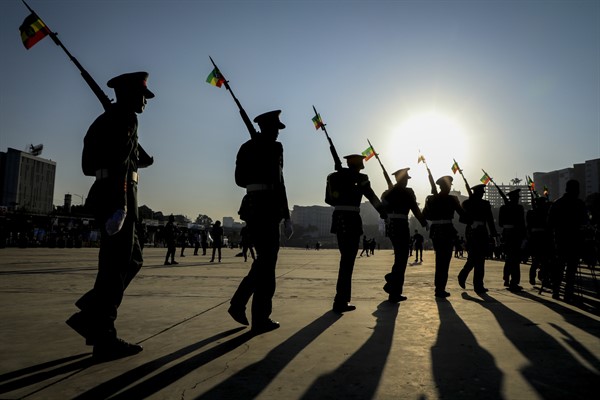During an African Union summit on humanitarian work in late May, Ethiopian Prime Minister Abiy Ahmed affirmed his government’s “commitment to ensuring assistance reaches those afflicted by natural and manmade disasters,” and called on international partners to “scale up their support for humanitarian services across the continent.”
The statement drew the ire of some commentators, who regarded it as an empty promise at a time when Ethiopia itself is enduring a dire humanitarian crisis, particularly in the war-ravaged northern region of Tigray and the neighboring regions, Amhara and Afar, to which forces under Abiy’s command have contributed. Nevertheless, Abiy’s statement added some weight to the Ethiopian government’s recent rhetoric, which has slowly but markedly softened, suggesting its willingness to address the consequences of a civil war that, since November 2020, has pitted government and allied forces against the Tigray People’s Liberation Front, or TPLF, a regional political party and rebel group.
There have been no large-scale confrontations between federal and TPLF forces since the end of November 2021, when a federal offensive forced TPLF fighters to retreat from large parts of Amhara and Afar that they had occupied for roughly five months. TPLF forces then reoccupied some of this territory in Afar, only to largely withdraw again at the end of April, on the back of the federal government’s unilateral announcement of a “humanitarian truce.” The federal government has also established a peace committee to propose pathways to end the conflict.

